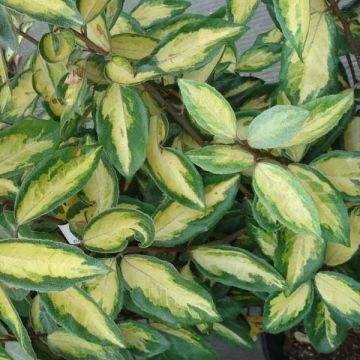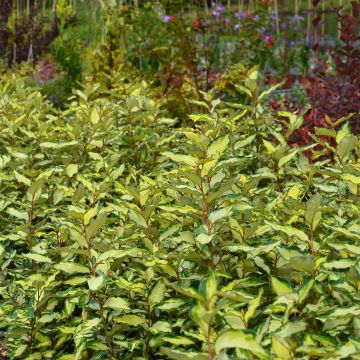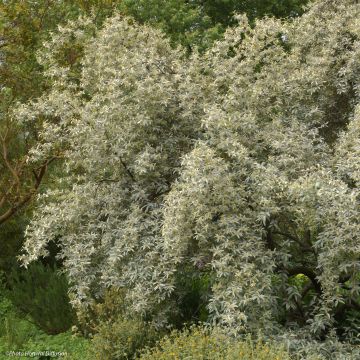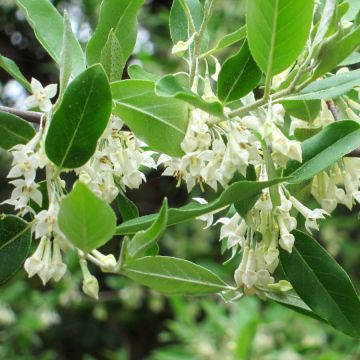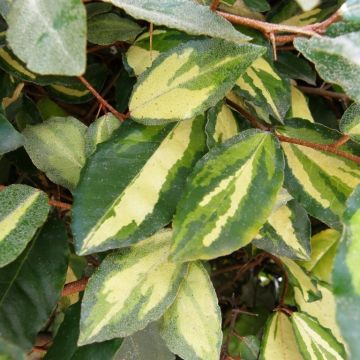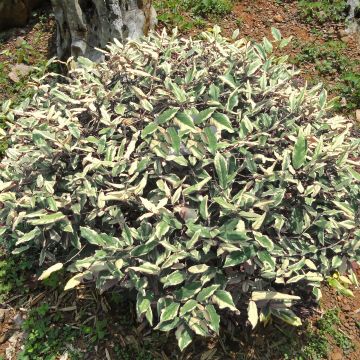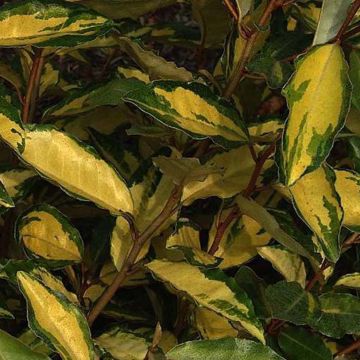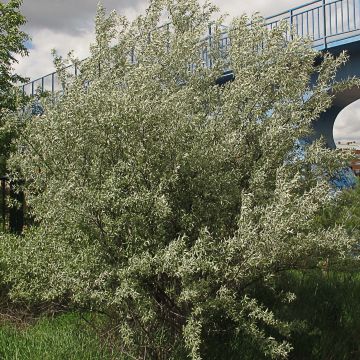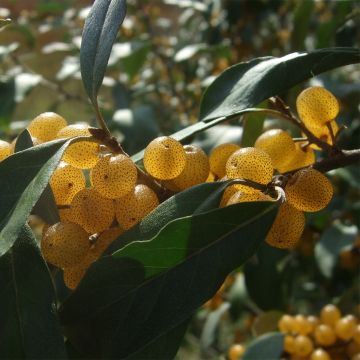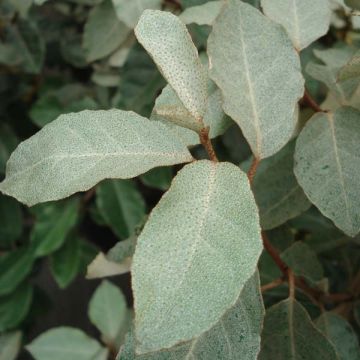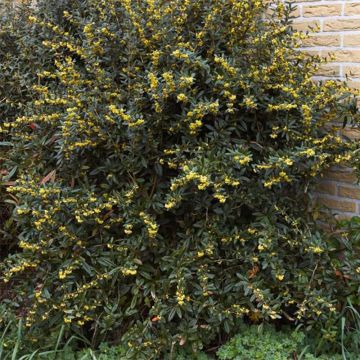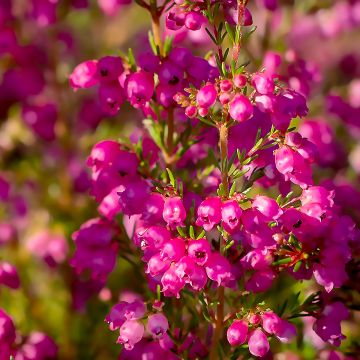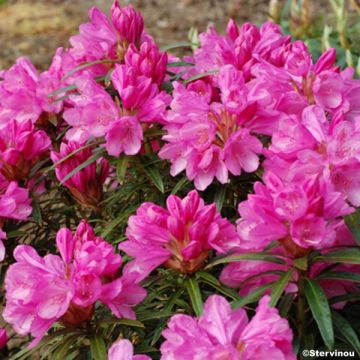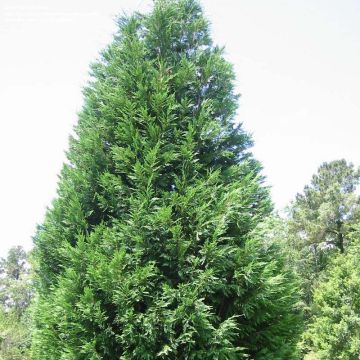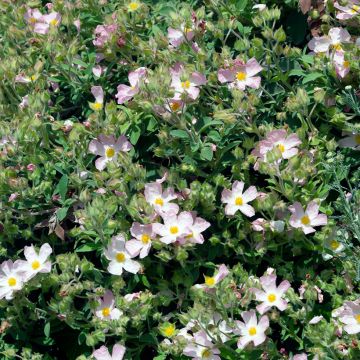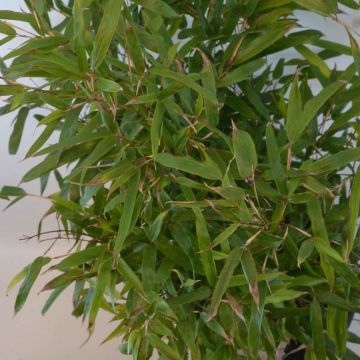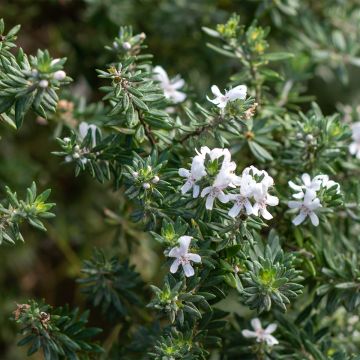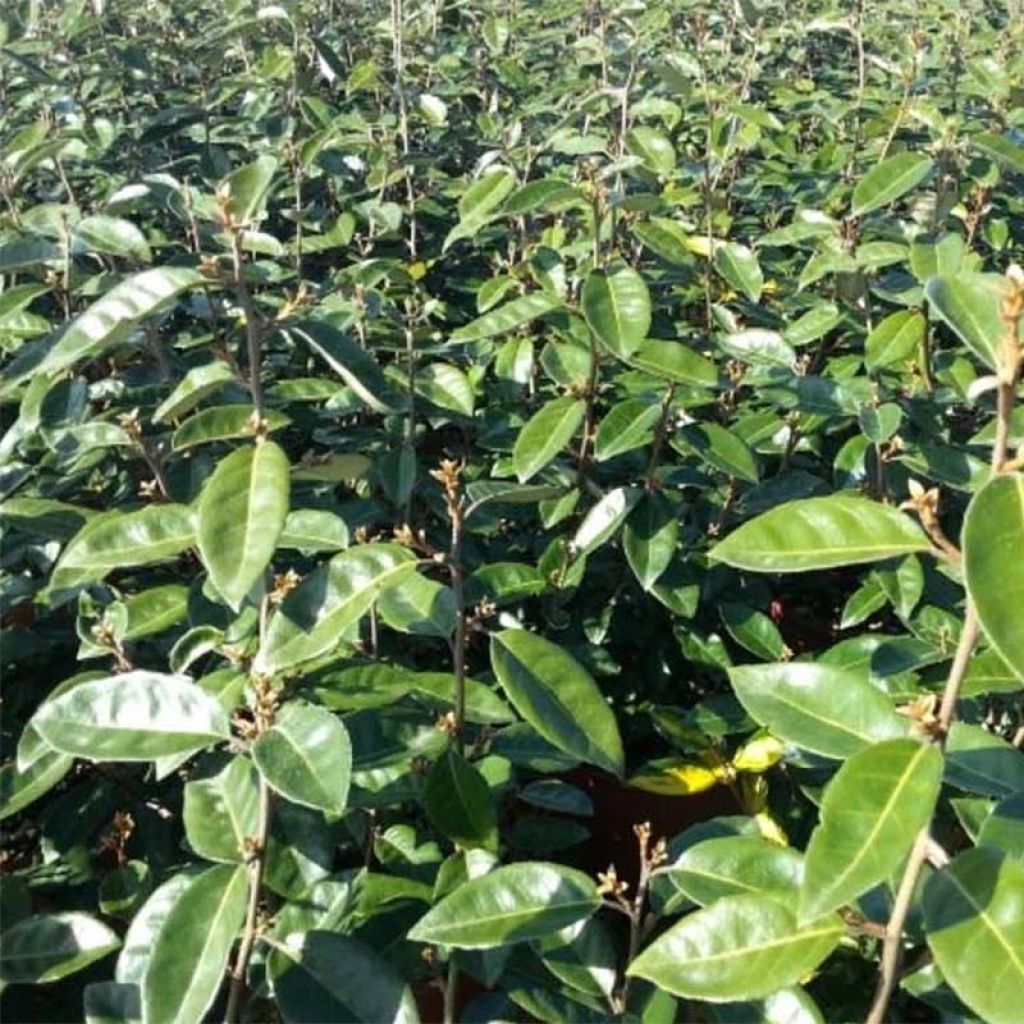

Elaeagnus ebbingei Compacta - Oleaster
Elaeagnus ebbingei Compacta - Oleaster
Elaeagnus ebbingei Compacta
Oleaster, Silverberry
This item cannot be shipped to the selected country
Delivery charge from €5.90
Delivery charge from €5.90
Delivery to Corse prohibited
More information
Schedule delivery date,
and select date in basket
This plant carries a 24 months recovery warranty
More information
We guarantee the quality of our plants for a full growing cycle, and will replace at our expense any plant that fails to recover under normal climatic and planting conditions.
From €5.90 for pickup delivery and €6.90 for home delivery
Express home delivery from €8.90.
From €5.90 for pickup delivery and €6.90 for home delivery
Express home delivery from €8.90.
Delivery to Corse prohibited: UE law prohibits the import of this plant from mainland France to Corse as part of the fight against Xylella fastidiosa. Please accept our sincere apologies.
More information

Does this plant fit my garden?
Set up your Plantfit profile →
Description
Elaeagnus ebbingei 'Compacta' is a variety of oleaster that stands out for its particularly dense and bushy habit and more moderate growth compared to the usual species. It quickly forms a beautiful evergreen bush with silvery green foliage that flowers in autumn, producing small inconspicuous white cream flowers with a pleasant fragrance, followed by edible fruits. Elegant, undemanding, and robust, it will be perfect in a hedge or large container, planted in well-drained soil, even in partial shade and by the seaside.
'Compacta' belongs to the Elaeagnaceae family, just like Eleagnus ebbingei from which it originates. The latter is a horticultural hybrid that appeared in a garden, resulting from the spontaneous cross-breeding of Eleagnus macrophylla and E. pungens (possibly E. reflexa), both native to Japan.
This cultivar shows rapid growth, good hardiness, and good resistance to summer drought. It forms a highly branched, rounded, dense, and compact bush, rarely exceeding 2 m (6.6 ft) in height and 1.5 m (4.9 ft) in width. Its evergreen foliage consists of tough, entire, lanceolate leaves with a green-grey colour, beautifully silvered at the beginning of the season on the upper side, and a pearly almond green colour punctuated with small bronze dots on the underside. The young shoots are intensely speckled with bronze-brown, just like the juvenile leaves in spring. The new shoots rapidly elongate in spring, with a rust-coloured, highly ornamental silvery sheen. Insignificant flowers appear in the axils of the leaves from September to November. They are delicately scented, highly honey-yielding and nectar-rich. They give way to small, elongated oval fruits, copper-coloured when ripe, containing an oily seed. These fruits, rich in vitamins and antioxidants, are edible for humans and appreciated by birds. Elaeagnus plants have a peculiar root system that has the ability to enrich the soil, similar to what legume roots do.
An Elaeagnus bush is noticeable from afar, particularly in spring, due to the silvery sheen of its foliage. It announces its presence in autumn with the pleasant fragrance of its small flowers hidden under the foliage. Its good branching and compact growth make it a perfect plant for container cultivation, but also very easy to use in most regions due to its good hardiness, around -15° C (5° F). It fits perfectly in a seaside garden or a dry garden. As it tolerates pruning well, it can be used in a mixed or evergreen hedge, alongside other beautiful shrubs such as Abelia x grandiflora, Arbutus unedo, Amelanchier ovalis, Buddleia alternifolia 'Argentea', or Cistus laurifolius. Note that its drought resistance allows it to be grown in poor, even rocky soils.
Its oval and orange fruits, measuring 2 cm (0.8 in) in length, are edible and very rich in vitamins and minerals. They are harvested in late winter or spring, once they are fully ripe. Pruning the bush in late summer will compromise autumn flowering and fruit production.
Report an error about the product description
Elaeagnus ebbingei Compacta - Oleaster in pictures
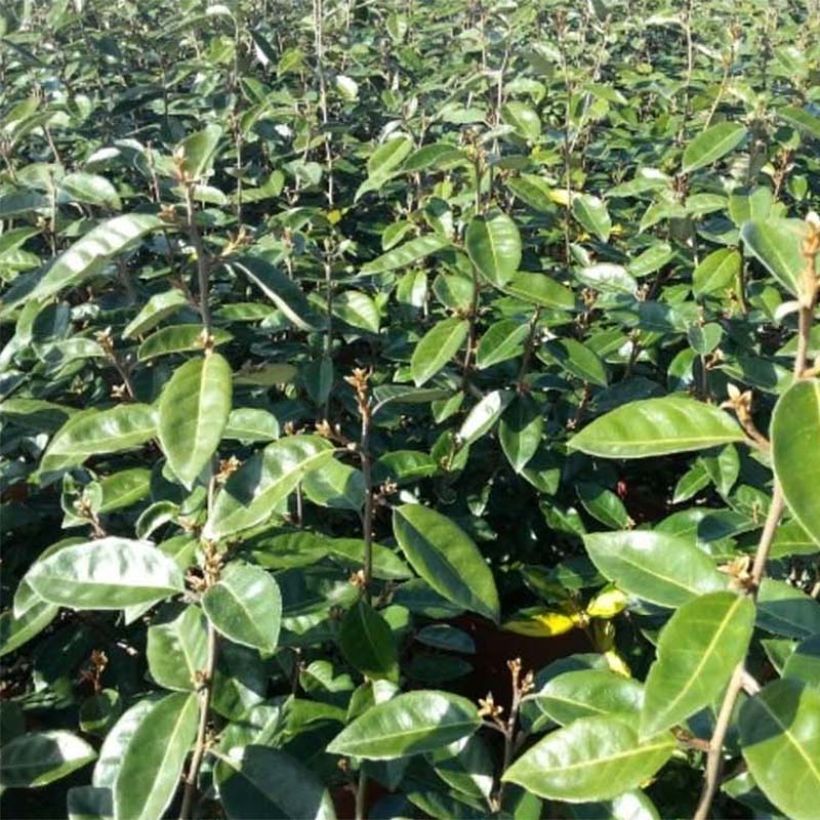

Plant habit
Flowering
Foliage
Botanical data
Elaeagnus
ebbingei
Compacta
Elaeagnaceae
Oleaster, Silverberry
Cultivar or hybrid
Other Elaeagnus - Oleaster
Planting and care
Plant in any loose and well-drained soil, even if it is chalky, dry or moist. Once well-established, it will completely do without watering, even in hot regions. It will thrive in partial shade (in a warm climate) or in full sun, but its foliage may be burned by excessive heat. In the first few years, practice light pruning to shape the young plant. Afterwards, simply maintain the balance of the shape, in late winter or spring, so as not to compromise the autumn flowering.
Planting period
Intended location
Care
-
, onOrder confirmed
Reply from on Promesse de fleurs
Evergreen shrubs
Haven't found what you were looking for?
Hardiness is the lowest winter temperature a plant can endure without suffering serious damage or even dying. However, hardiness is affected by location (a sheltered area, such as a patio), protection (winter cover) and soil type (hardiness is improved by well-drained soil).

Photo Sharing Terms & Conditions
In order to encourage gardeners to interact and share their experiences, Promesse de fleurs offers various media enabling content to be uploaded onto its Site - in particular via the ‘Photo sharing’ module.
The User agrees to refrain from:
- Posting any content that is illegal, prejudicial, insulting, racist, inciteful to hatred, revisionist, contrary to public decency, that infringes on privacy or on the privacy rights of third parties, in particular the publicity rights of persons and goods, intellectual property rights, or the right to privacy.
- Submitting content on behalf of a third party;
- Impersonate the identity of a third party and/or publish any personal information about a third party;
In general, the User undertakes to refrain from any unethical behaviour.
All Content (in particular text, comments, files, images, photos, videos, creative works, etc.), which may be subject to property or intellectual property rights, image or other private rights, shall remain the property of the User, subject to the limited rights granted by the terms of the licence granted by Promesse de fleurs as stated below. Users are at liberty to publish or not to publish such Content on the Site, notably via the ‘Photo Sharing’ facility, and accept that this Content shall be made public and freely accessible, notably on the Internet.
Users further acknowledge, undertake to have ,and guarantee that they hold all necessary rights and permissions to publish such material on the Site, in particular with regard to the legislation in force pertaining to any privacy, property, intellectual property, image, or contractual rights, or rights of any other nature. By publishing such Content on the Site, Users acknowledge accepting full liability as publishers of the Content within the meaning of the law, and grant Promesse de fleurs, free of charge, an inclusive, worldwide licence for the said Content for the entire duration of its publication, including all reproduction, representation, up/downloading, displaying, performing, transmission, and storage rights.
Users also grant permission for their name to be linked to the Content and accept that this link may not always be made available.
By engaging in posting material, Users consent to their Content becoming automatically accessible on the Internet, in particular on other sites and/or blogs and/or web pages of the Promesse de fleurs site, including in particular social pages and the Promesse de fleurs catalogue.
Users may secure the removal of entrusted content free of charge by issuing a simple request via our contact form.
The flowering period indicated on our website applies to countries and regions located in USDA zone 8 (France, the United Kingdom, Ireland, the Netherlands, etc.)
It will vary according to where you live:
- In zones 9 to 10 (Italy, Spain, Greece, etc.), flowering will occur about 2 to 4 weeks earlier.
- In zones 6 to 7 (Germany, Poland, Slovenia, and lower mountainous regions), flowering will be delayed by 2 to 3 weeks.
- In zone 5 (Central Europe, Scandinavia), blooming will be delayed by 3 to 5 weeks.
In temperate climates, pruning of spring-flowering shrubs (forsythia, spireas, etc.) should be done just after flowering.
Pruning of summer-flowering shrubs (Indian Lilac, Perovskia, etc.) can be done in winter or spring.
In cold regions as well as with frost-sensitive plants, avoid pruning too early when severe frosts may still occur.
The planting period indicated on our website applies to countries and regions located in USDA zone 8 (France, United Kingdom, Ireland, Netherlands).
It will vary according to where you live:
- In Mediterranean zones (Marseille, Madrid, Milan, etc.), autumn and winter are the best planting periods.
- In continental zones (Strasbourg, Munich, Vienna, etc.), delay planting by 2 to 3 weeks in spring and bring it forward by 2 to 4 weeks in autumn.
- In mountainous regions (the Alps, Pyrenees, Carpathians, etc.), it is best to plant in late spring (May-June) or late summer (August-September).
The harvesting period indicated on our website applies to countries and regions in USDA zone 8 (France, England, Ireland, the Netherlands).
In colder areas (Scandinavia, Poland, Austria...) fruit and vegetable harvests are likely to be delayed by 3-4 weeks.
In warmer areas (Italy, Spain, Greece, etc.), harvesting will probably take place earlier, depending on weather conditions.
The sowing periods indicated on our website apply to countries and regions within USDA Zone 8 (France, UK, Ireland, Netherlands).
In colder areas (Scandinavia, Poland, Austria...), delay any outdoor sowing by 3-4 weeks, or sow under glass.
In warmer climes (Italy, Spain, Greece, etc.), bring outdoor sowing forward by a few weeks.

































